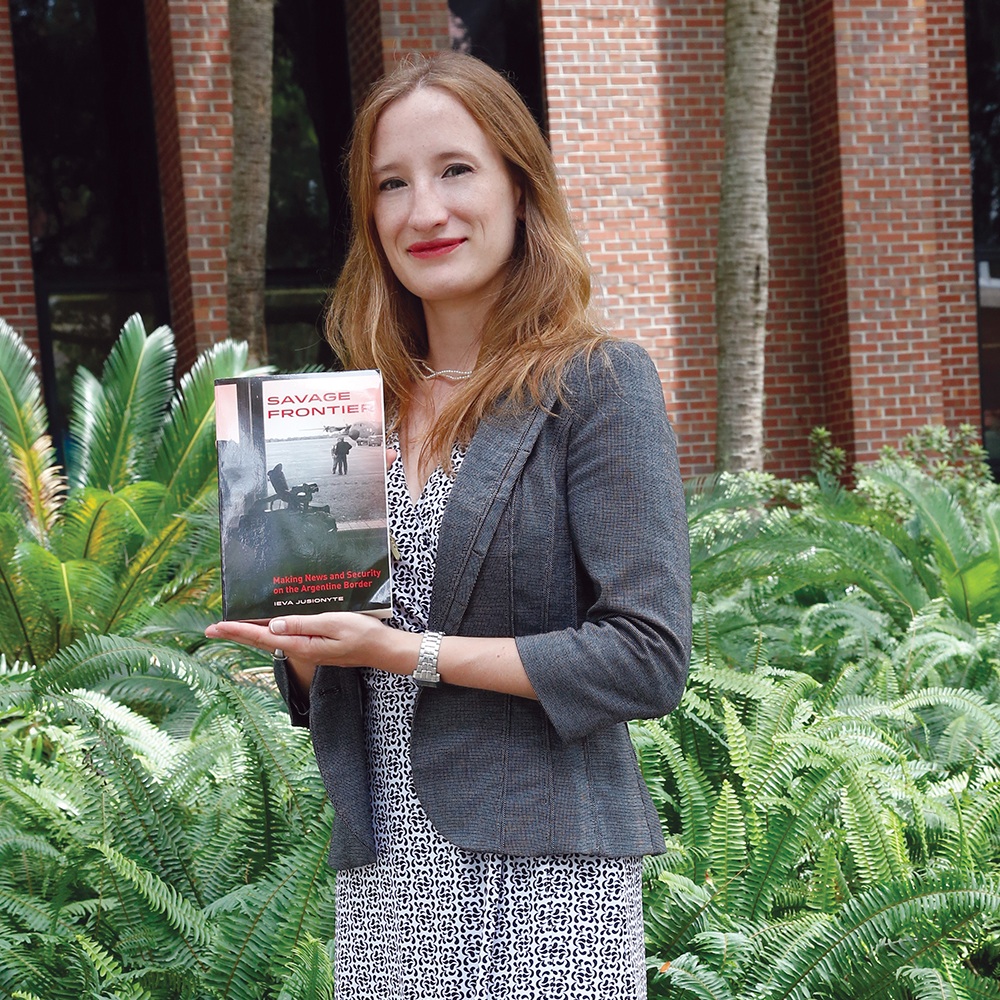A journalist’s view of a “savage frontier”

Since 2008, Ieva Jusionyte has conducted fieldwork in the tri-border region between Argentina, Brazil and Paraguay, known as a haven of international organized crime for drug and human trafficking, contraband and money laundering. She has seen it all up close and has written about her experiences.
An assistant professor in the department of anthropology and UF Center for Latin American Studies, Jusionyte will talk about her book “Savage Frontier: Making News and Security on the Argentine Border” Tuesday, Sept. 22 at 4 p.m. in Smathers Library, Room 100. The event is part of the Authors@UF series presented by the George A. Smathers Libraries.
Jusionyte is a cultural anthropologist with a background in news journalism. She specializes in political and legal issues, applying an ethnographic approach to the study of security, governance and borders.
“Savage Frontier: Making News and Security on the Argentine Border” focuses on the experiences of local journalists who draw on their encounters with crime, violence and other forms of social vulnerability, marginalization and government impunity, to report on some illegal activities, but not others. Security for them is not an all-encompassing discourse about existential threats, but a lived experience embedded in their everyday practices, where the role of the media is to maintain the boundary between news stories and public secrets.
You are welcome to come meet Jusionyte, who believes that social science research should participate in broader conversations on public issues and especially contribute to the well-being of communities under study. She strongly advocates for collaborative ethnographic projects.